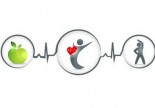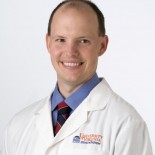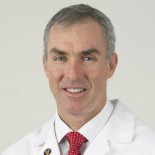Search Podcasts
Eat Nuts, Live Longer?
Should You Get Screened for Vascular Disease?
Understanding Heart Disease in Women
Women & Statins: Do You Really Need Them?
Advances in Heart Failure Treatment
Heart-to-Heart: Personalized Care for Cardiology Patients
Binge Eating: 4 Dangerous Myths
Your Food is Making You Sick
New Tiny Implant Cardiac Monitor May Save You from a Stroke
Caffeine & Heart Disease: What's the Correlation?
Essentials of Hypertension: How to Gain Control
Serious Effects of Depleted Cortisol Levels
The Biggest Success of the Proposed Nutrition Facts Label: Added Sugars Will Mean Less Chronic Disease & More Jobs For America
The United States Food and Drug Administration's (FDA's) proposed changes to one of the most iconic, well-recognized designs to all Americans, were presented by First Lady Michelle Obama Thursday.
The changes are much more than a new design and adding a few numbers to the panel.
From a broader perspective, the FDA's proposed changes reflect a shift in the chance that health care changes in the future will be a tailwind rather than a headwind to American jobs and prosperity. After 30 years of US obesity rates climbing, there is a shift towards creating solutions that are in favor of American consumers, rather than the powerful food industry.
The FDA estimates that the changes will mean a one-time cost of $2.3 billion to the food industry for labeling, reformulation, and record keeping, plus small annual costs for recurring record-keeping. However the FDA also predicts that over the next 20 years, these changes will save an average of $21.1 billion to $31.4 billion in healthcare costs.
Two key changes : Calories per container and per more accurate portions and Added Sugars.
Advanced Glycation End Products: Slow Down Your Aging Process
Cruciferous Vegetables: Nature's Magic
Prevention-Driven Heart Care
Women vs. Men: Major Differences in Heart Health
Drinking Over the Age of 45: What Are the Risks?
Advanced Imaging Options for Heart Disease
The Comprehensive Robotics and Minimally Invasive Cardiac Surgery Program at Saddleback Memorial Medical Center
Heart Healthy with the “Drugless Doctor”
Foods to Keep Your Arteries Clean
Dangerous Consequences of Magnesium Deficiency
Valve Disease and the New Medical Frontier
5 Keys to Living a Long, Healthy, Happy Life
Last week the U.S. Centers for Disease Control and Prevention (CDC) released a report that found American's life expectancy has yet again increased for both men and women. Individuals born in 2009 can expect to live longer than ever before - approximately 78.5 years, up from just 78.1 years one year ago.
A gain of more than a third of a year in just one year. At this rate, this might be interpreted to mean the 30 year old person (in 2010) making healthy choices who would have been estimated to live to 95 in 2010, would make it to 115+ by the time she is 90 in 2070.
Since the data were collected and analyzed, life expectancy has increased even higher to 78.7 years, according to the CDC website, in-line with this potential. But will these be healthy vibrant years. Yes, you can make them that.
Thanks to improvements in medical technology for treating heart disease and stroke, Americans are living longer lives than ever before. The downfall of these technologies is that while they are able to buy a few extra years, they are not necessarily providing quality years of health and wellbeing.
Prevention is needed to do that.
Top Foods to Boost Your Heart Health
Is Meat the New Tobacco?
Can Hypothermia Save Lives?
Did you know that ice can potentially save your life?
If you're having a heart attack, it could.
Scientists are discovering how cooling the human body down several degrees can actually save lives. This isn't the stuff of science fiction, but the result of many years of research.
If you find this interesting, read on to find out how hypothermia is making a difference in the medical field. Who knows, it may actually save your life one day.
A Minimally Invasive Treatment Option for Atrial Fibrillation
At the Heart of the Matter
Get Anxiety Free – Naturally
Lower Your Cholesterol with Omega-3 Fatty Acids
Health Benefits of Donating Blood
Donating blood has many health benefits. Not only will you help someone in need of blood, but you will also help optimize your health and wellness. Here are the top three health benefits from donating blood.
Protect Your Heart by Reducing Oxidative Stress
Iron in your blood can oxidize resulting in damage to your cells and tissues. The increase in oxidative stress is most dangerous to your cardiovascular system. According to a new study published by the American Medical Association, giving blood every six months led to fewer heart attacks and strokes in test participants ages 43 to 61.
Excessive iron is thought to contribute to heart disease, especially at its early stages. Donating blood on a regular basis reduces the iron stores in the body and this study supports the theory that reducing iron appears to preserve cardiovascular health.
A second study of 2,682 men in Finland, reported in the American Journal of Epidemiology, found that men who donated blood at least once a year had an 88 percent lower risk of heart attacks than non-donors. This same group of researchers published a follow-up study and found that men who donated blood were less likely than non-donors to show any signs of cardiovascular disease.1
Heart Symptoms to Worry About
Curcumin & Inflamation: Overweight Cats Provide Insight
Options for Treating Heart Failure
Preventing and Treating Stroke
Should You Be Getting a "Tune Up" Instead of a Checkup? Part 2
Go Nuts for Better Health
Should You Be Getting a "Tune Up" Instead of a Checkup?
Great Cholesterol Myth: Don’t Let Statins Destroy Your Health
New Guidelines on Statins: Are they Necessary?
Non-Hormonal Therapies for Hot Flashes
Natural Treatment Options for Heart Disease
Would Knowing Your Chance of Dying Early Change Your Behavior?
Would 51-year-old James (Tony Soprano) Gandolfini or Tim ("If it's Sunday, it's Meet The Press") Russert be alive today if their docs had followed the new cardiovascular disease prevention guidelines just issued by the American College of Cardiology and American Heart Association?
This week, we asked that question to many of the docs with whom we work at the Wellness Institute. We just do not know enough about Gandolfini or Russert; however, you know enough about YOU—that's the key. And the likelihood is Gandofini and Russert both would have been taking statins if their docs had followed the new guidelines...and aspirin and exercising, losing weight and changing their diets (and Russert and Galdofini weren't doing food –perhaps the most important choice—right if observations and news reports are correct.) You might too—and we want you to stay alive.

















































